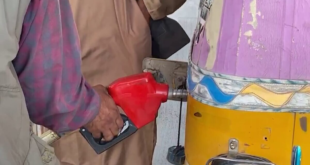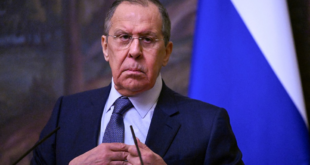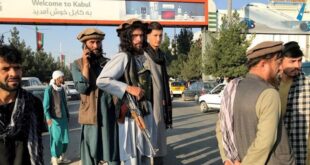AGRAM, Afghanistan – A top American general said Sunday that attacks along the Afghan-Pakistan border have dropped more than 40 percent since July and the U.S. and its allies are making progress in the fight against the the tali ban.
Brig. Gen. Joseph Votel said the decrease in insurgent activity along the border could be attributed to the onset of winter, a rise in insurgent attacks in Pakistan and an increase in communication and coordination among NATO, Afghan and Pakistani forces.
Recent media and analysts’ reports have said the international mission is not succeeding and Afghanistan is becoming increasingly unstable. This year has been the deadliest since the 2001 U.S.-led invasion, with more than 6,300 people killed in the violence, mostly militants, according to an Associated Press count based on official figures.
The country has also seen a record number of suicide bomb attacks — more than 140 — this year.
But Votel, the deputy commanding general of U.S. troops in Afghanistan, said Sunday that the international mission is making progress.
“I don’t agree that we’re moving in a negative direction,” Votel told journalists at Bagram, the main U.S. base.
“I think we are making progress. This is a long-term proposition and there is a long way to go in security and development and other aspects here, but we are making progress and moving forward,” he said.
Votel said that, by U.S. measurements, security has increased in 25 districts that American forces oversee in eastern Afghanistan, governance has improved in 12 and development work has improved in 27. There is a total of 159 districts in the eastern region of Afghanistan where U.S. troops primarily operate.
He said the U.S. military has killed or captured more than 50 “significant” insurgent leaders this year, action that has created a “void on the battlefield.” He said despite those losses, insurgents have shown some improvements in their effectiveness.
Progress by the Afghan army, which has had an increased role in operations this year, has been the biggest achievement the U.S. helped oversee in 2007, Votel said. Asked if al-Qaida fighters could be moving from Iraq into the Afghanistan-Pakistan region, he said it was a “distinct possibility.”
In a new assessment published by the Center for Strategic and International Studies last week, analyst Julianne Smith cautioned that the situation in Afghanistan is growing increasingly unstable, saying the country is headed in the wrong direction and that a complete overhaul of NATO strategy was needed.
The New York Times reported Sunday the Bush administration was deeply concerned about the prospect of failure in Afghanistan, and Washington and NATO have opened three reviews of the Afghan mission.
White House press secretary Dana Perino declined to comment on the report, saying, “We are constantly reviewing the situation in Afghanistan to ensure the coalition is doing all it can to beat back the Taliban.”
Defense Secretary Robert Gates acknowledged during questioning by a Congressional committee last week in Washington that opinion polls of Afghans show increasing support for the radical Taliban.
Gates, who met with U.S. allies in Scotland last week, said the U.S. would “brainstorm” for ideas on how other NATO allies might contribute more troops or equipment in Afghanistan. Gates has been pressing for more helicopters, 3,500 police trainers and three battalions of ground troops.
A roadside bomb blast in eastern Afghanistan killed two Afghan civilians and wounded five others Sunday, while a clash in the south left four Taliban dead, officials said.
The explosion happened in Yaqoubi district in eastern Khost province, said Wazir Pacha, a spokesman for the provincial police chief.
Pacha accused the Taliban of carrying out the attack.
Militants often use roadside and suicide bomb attacks against Afghan and foreign troops in the country. Most victims of such attacks have been civilians.
In southern Afghanistan, meanwhile, Afghan security forces clashed with Taliban militants outside the town of Musa Qala in Helmand province, killing four insurgents, the Defense Ministry said.
The clash occurred just days after an offensive by Afghan, British and American troops pushed the militants out of the town, which they had controlled for more than 10 months.
 Eurasia Press & News
Eurasia Press & News



